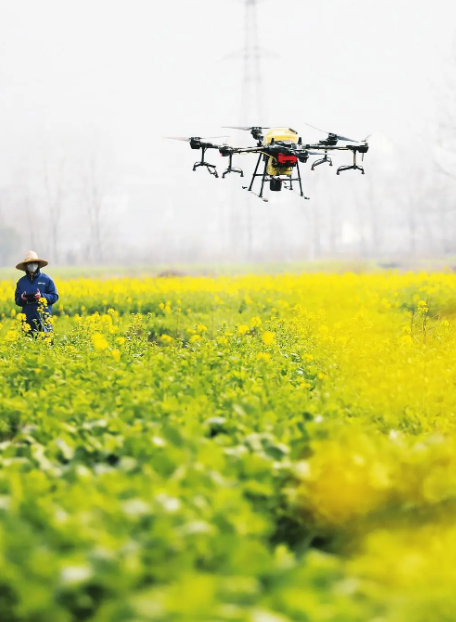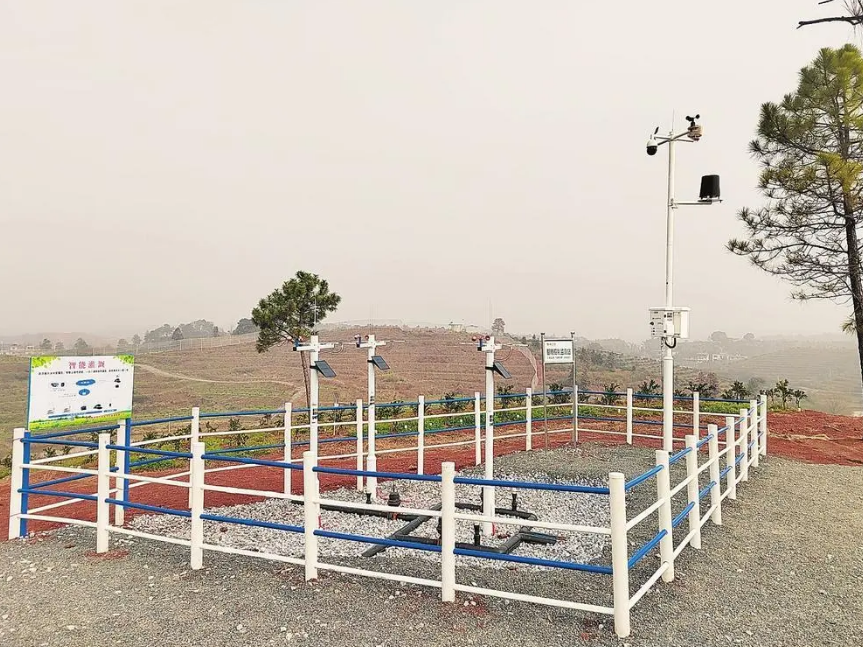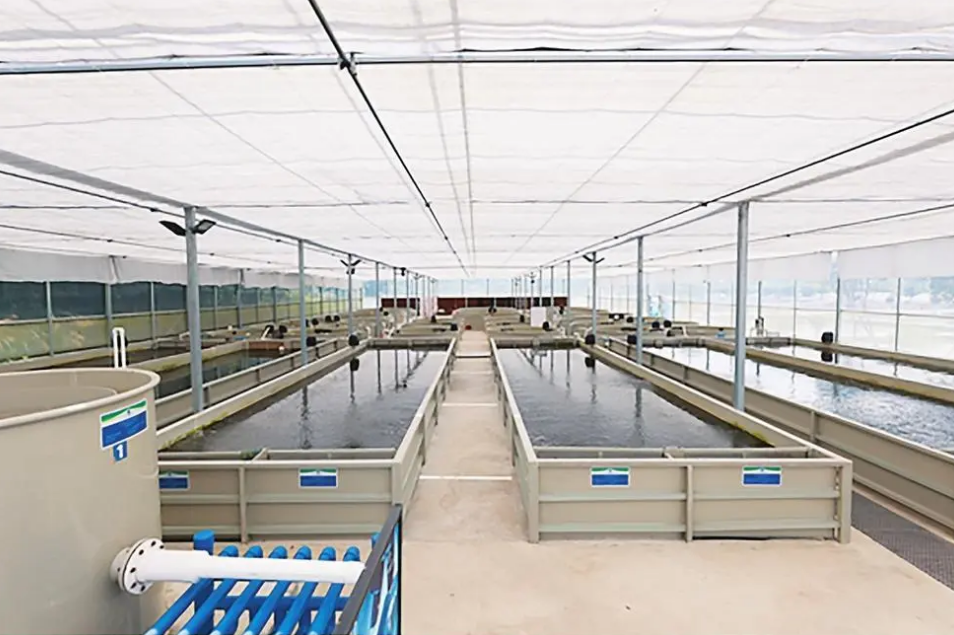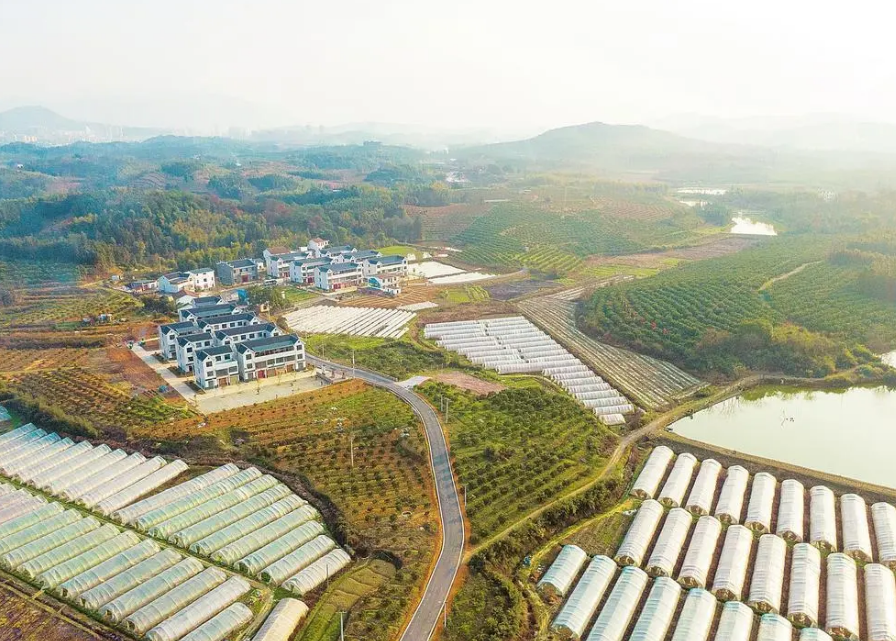Chenzhou: add digital wings to agriculture
2023-04-01
It is time for spring ploughing. Such new agricultural technologies as integrated remote sensing monitoring, UAV plant protection, integrated automated control system of water and fertilizer have accelerated the transformation of traditional agriculture towards intelligent agriculture which is the inevitable trend of modern agricultural development. How does Chenzhou’s intelligent agriculture develop? What bottlenecks are there and how to solve them?

Digital technology facilitates agricultural production
Nowadays, farmers no longer need to toil in the fields. With the mode of “digital technology plus intelligence”, UAV remote sensing technology, intelligent agricultural machines and farming and harvesting trusteeship programs have opened a new era of agricultural production and income increase.
In Shengniu Jin’guo Bingtang Orange Yijihua Digital and Intelligent Orchard in Youtang Village of Yongxing County, the intelligent monitoring equipment of a small meteorological station is particularly eye-catching. The real-time recorded data of soil moisture, air temperature, wind speed and direction keep switching on the screen. This is the visual intelligent irrigation system of the orchard.
“Thanks to this system, we can conduct remote real-time monitoring of the orchard’s weather, soil and environment on computers, mobile phones and other terminals, and realize automated control of irrigation, fertilization, ventilation, temperature regulation and other agricultural facilities.” Zhang Zimu, technical director of Shengniu Agricultural Development Co., Ltd., said that this system can not only make orchard management more time-saving and labor-saving, but also generate experience reports by analyzing data from previous years, so as to scientifically guide production, enhance the early warning ability of natural disasters and improve the disease resistance of fruit trees.

With the continuous development of information technology and agricultural modernization, big data and agricultural industry are fully integrated. Through the mode of “data plus algorithm”, the intelligent production, network collaboration and service extension of agriculture are accelerated, which provides feasibility for green production, intensive management and personalized supply of agricultural industry.
In Yizhang Zhanxiang Agricultural Planting Base, cameras, sensors and various Internet of Things devices provide real-time production management services. Technicians can intelligently manage 9 navel orange planting bases through a smart orchard app in their mobile phones.
In May 2021, Zhanxiang Agriculture built the first “digital citrus orchard” of Alibaba Cloud digital intelligence agriculture in China, realizing the visual traceability as well as production and marketing coordination of the whole chain of navel orange from the origin to the dining table in terms of the assignment of agricultural tasks, soil moisture, environmental meteorological monitoring and early warning of insect pests.
In recent years, relying on the “digital orchard”, Zhanxiang Agriculture has used data to offer “nutritious meals” for fruit trees with the most suitable temperature, humidity and light maintained at the base, and successfully created the new brand of “Hecheng”.

Big data technology is used to increase agricultural production efficiency, but also is applied to improve the quality of agricultural products. Recently, in the edible fungi base of Chenzhou Lyuzhiran Agricultural Development Co., Ltd., every foam box containing edible fungi was labeled with the product logo of the “vegetable basket” of the Guangdong-Hong Kong-Macao Greater Bay Area and the QR code for quality and safety traceability.
“By scanning the QR code, you can see all the information about growth, fertilization, picking, production and delivery.” He Xiyu, an official of the Bureau of Agriculture and Rural Affairs of Chenzhou City, said that at present, 100% of leading enterprises at or above the municipal level and authorized enterprises of provincial-level regional public brands such as “Xiangganhong” and “Xiangjiangyuan” have settled in the national traceability platforms and the provincial “ID card” management platforms.
In Anren County, farmers can place orders through the mobile phone app and the nearby agricultural machinery operators will take orders to work in the designated fields.
He Qilong, president of Hunan Shengping Modern Agricultural Machinery Cooperative Union, said that the smart agricultural machinery service management platform can help farmers find nearby agricultural machinery operators quickly online.
At present, more than 600 operators have registered on the platform with over 1,000 agricultural machines such as seedling-throwing machines, rice transplanters and UAVs, which can effectively solve the problem of high idle rate of agricultural machines of large farmers and the difficulty of finding agricultural machines for small farmers.
Smart agricultural industry chain is to be established
In recent years, Chenzhou City has increased its support for migrant workers to return home and start businesses. Groups of “new farmers” armed with digital technology and Internet thinking have been exploring new ideas in digital smart agriculture, enabling more “high technology” to be applied in the fields.
“I don’t need to worry about spraying insecticide, fertilization, harvest and sales.” Li Biao, manager of Jin’guoguo Agricultural Planting Base in Youtang Village of Yongxing County, said that he entrusted Shengnong Supply and Marketing Company to manage the bingtang orange orchard and solve the technical bottleneck in the production process.
Nowadays, more farmers buy agricultural social services. The “field nannies” reduce farmers’ labor burden. The barriers between production and sales have been broken through using big data to make agricultural production more “intelligent”.
At the Happy Family Farm in Wushan Village of Huatang Town in Beihu District, the “Strawberry Greenhouse” intelligent agricultural platform control system can not only conduct data monitoring and collection, but also sell products through livestreaming.

In the first agricultural product sorting center in Beihu District, such functions as the drying, storage, sorting, processing and preservation of agricultural products are all available. In addition to broadening the sales channels, the powerful Internet has also greatly increased the value of agricultural products.
The “livestreaming rooms” and e-commerce platforms are effective ways to apply the “digital plus” thinking in the field of agricultural product sales services, solve the problems about agricultural product sales through Internet technology, and build a more efficient, convenient and targeted production and marketing system based on digital technology and platforms.




